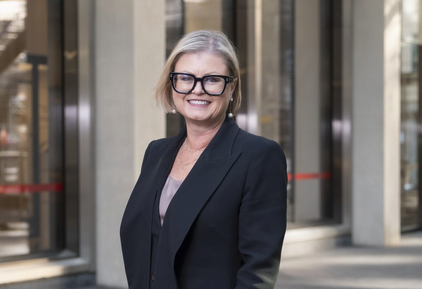
Rachel Slade, NAB group executive personal banking
The Minister for Financial Services Stephen Jones has backed calls to put some “friction” back into the retail payments system to enable more effective fraud detection.
The idea is to slow processing times for some transactions to allow for more account and ID verification before a transaction is completed.
Speaking at the Australian Payments Network Summit in Sydney this week, Jones said: “There will be more friction. There will be cases where we need to slow things down.”
He said changes to processing times would be risk-based, meaning that a regular Bpay payment to a biller would continue to be processed on the New Payments Platform in near-real time, while a payment to a new payee, a particularly large payment or an overseas payment might take longer.
Another speaker at the conference, ACCC deputy chair Catriona Lowe said: “What we are seeing is how sophisticated the scammers have become at getting people to override their usual cautions. The inclusion of some friction will help people think more about what they are doing.”
When the NPP was being developed the goal in payments was to have instant payments on a 24/7 basis. Now that we have it, the goal is to have provide greater scam protection.
NAB group executive personal banking Rachel Slade said the bank was trying to get the balance right between speedy service and security speed bumps, which she described as “helpful friction”.
She said the bank processed more than a billion online payments a year. Over the past year it identified around 1500 scam events a month.
Slade said: “Alerts and triggers have to be founded on a risk assessment of each individual payment that gets a customer to think really carefully before they click.
“Helpful friction needs to be targeted and appropriate, it needs to protect customers while allowing them to transact how they want. And it needs to identify the right transactions that need extra scrutiny – giving customers a prompt to pause.
“For banks, this friction might be triggered by a customer sending money to a high fraud risk crypto exchange, a transfer to a suspected investment scam or tell-tale signs about a transaction or interaction that might indicate a customer is being scammed.
“We’ve introduced real-time payment alerts on payments that raise scam concerns. Prompts are triggered by unusual and uncharacteristic transactions and are designed to get the customer to pause and review a suspicious transfer before they hit send.”
Slade said the bank’s research showed customers would accept slower payments if it meant better protection from scams. She said the bank would not put alerts on all payments because too many notifications would risk “banner blindness”.
This issue is not limited to retail payments. Accenture’s 2023 Global Commercial Payments Study included the finding that commercial payments clients put weak fraud prevention at the top of the list of causes of dissatisfaction with payments providers.
Ryan McQueen, Accenture’s Asia payments lead, said fraud and scam prevention was just as much of an issue for businesses as for consumers.
“The payments industry has to invest in real-time fraud prevention. There is a lot of work going on to develop risk scores and entity checks. We have done some work on this and it is fair to say a bit of capability still needs to be developed,” McQueen said.
The Accenture report makes clear that commercial payments clients dissatisfied with the service from their payments service providers would switch providers.
Slade said one of the keys to stopping scammers was greater co-ordination between industry players, regulators and government. This is the thinking behind the formation this year of the Scam-Safe Accord, an initiative of the Australian Banking Association and the Customer Owned Banking Association, and the National Anti-Scam Centre, which the ACCC is running.
Part of the purpose of the accord and the centre is to co-ordinate more effective intelligence sharing across the industry. All banks will act on scam intelligence from the Australian Financial Crimes Exchange from the middle of next year and join the Fraud Reporting Exchange.